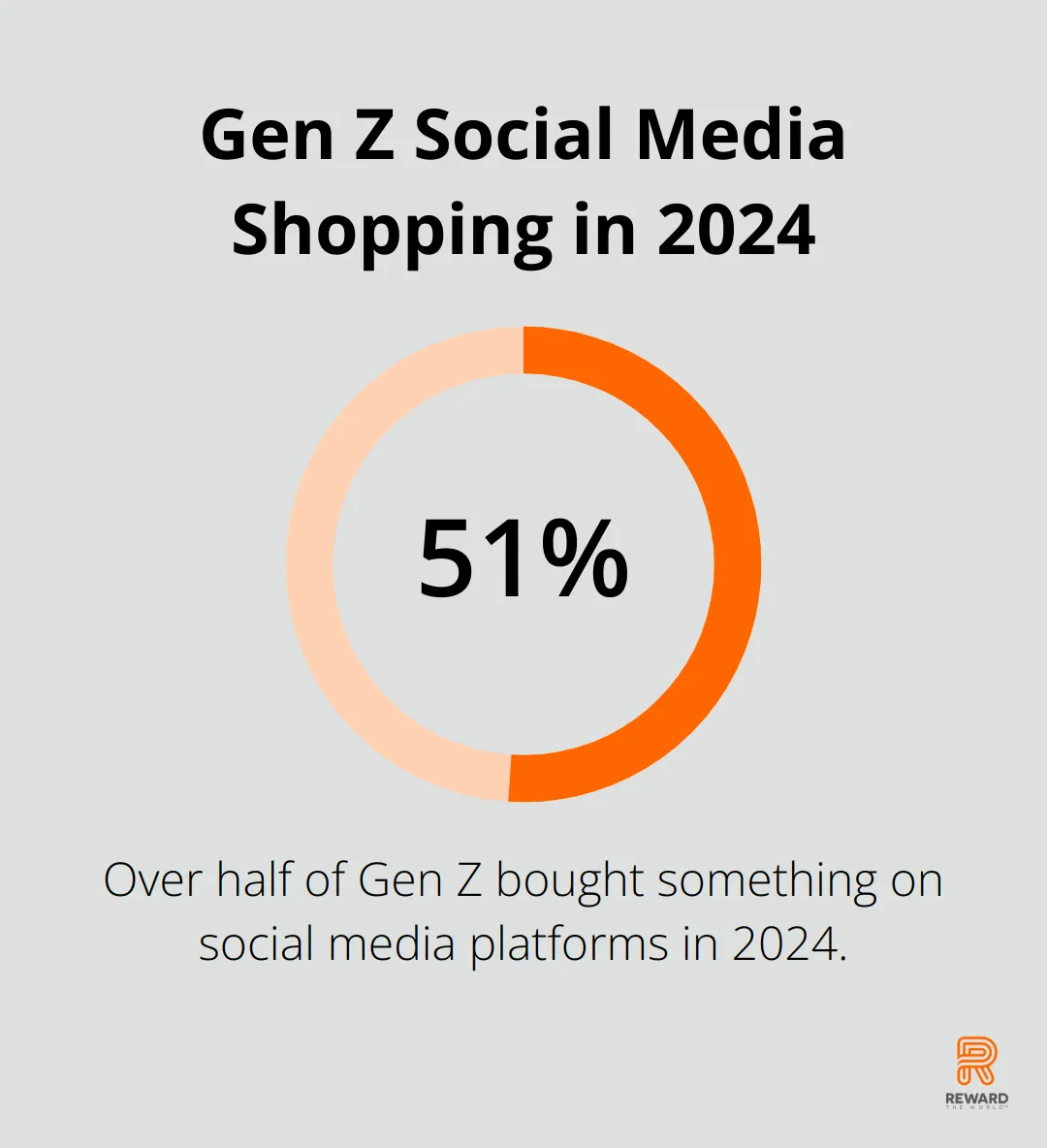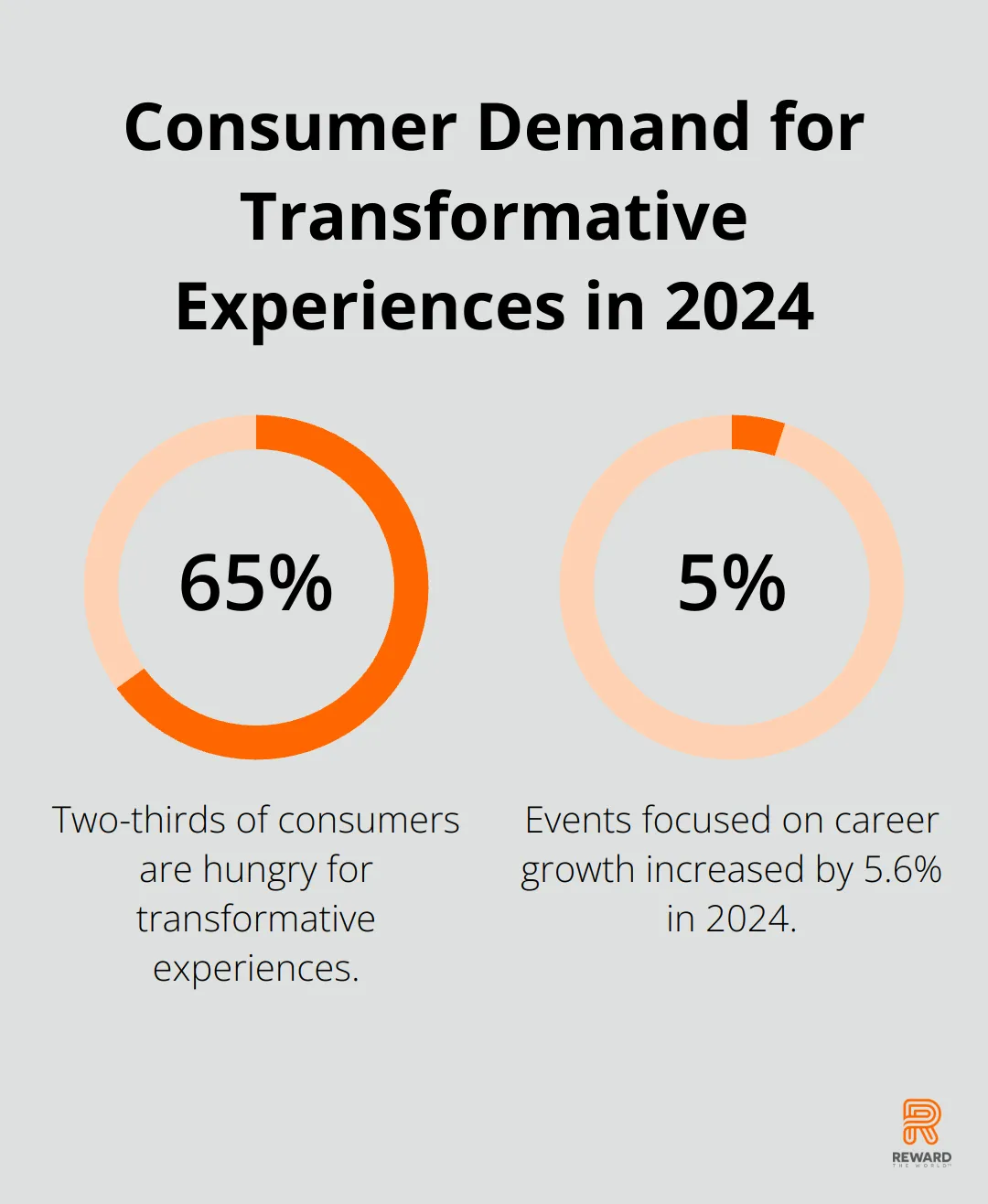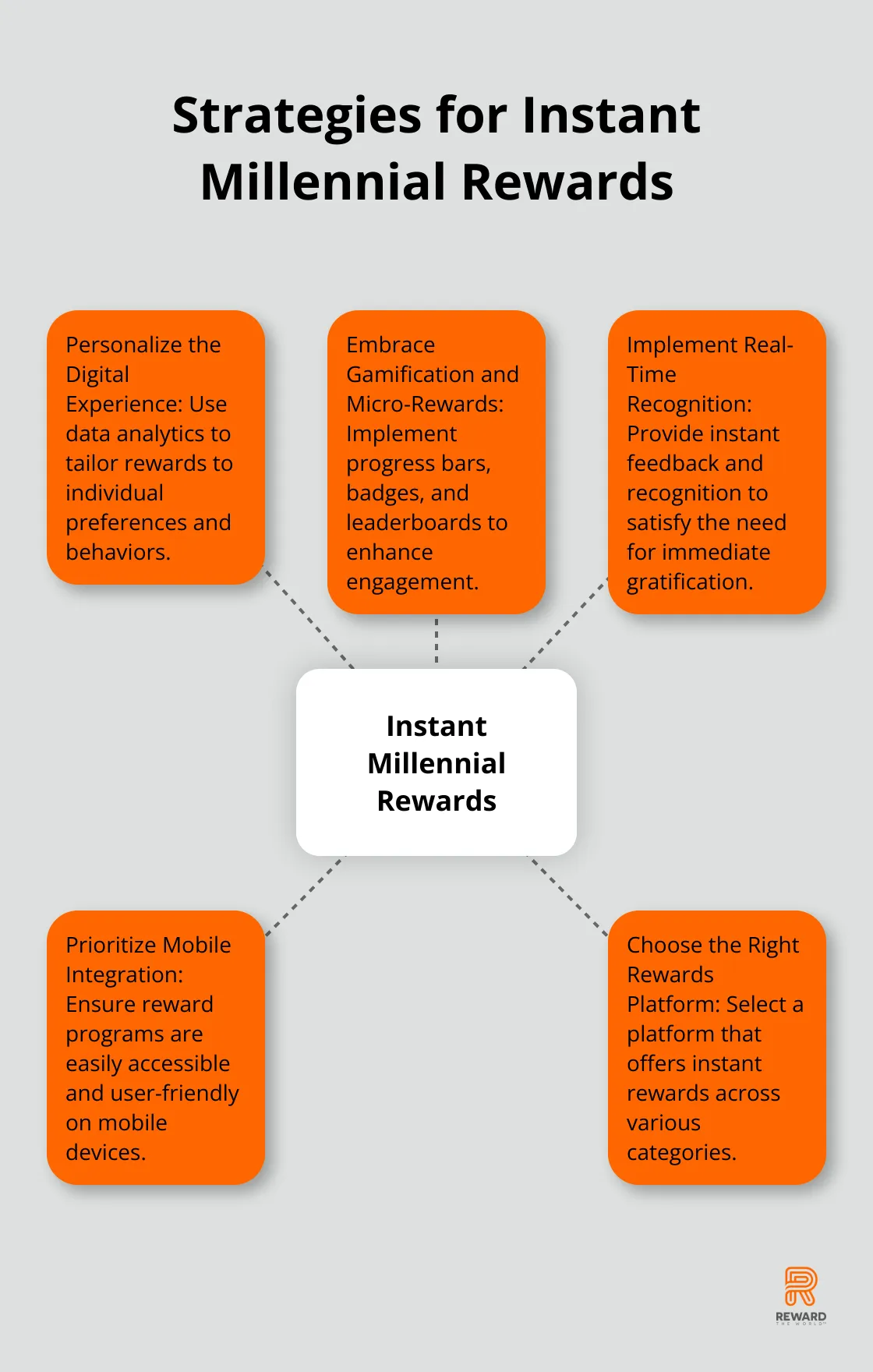
Millennials have grown up in a world of instant gratification, shaping their expectations for quick and meaningful rewards. At Reward the World, we’ve observed how this generation’s desire for immediate recognition impacts their work and personal lives.
Technology has played a pivotal role in fueling this need for instant feedback and rewards. Understanding the psychology behind this phenomenon is key to creating effective reward systems that resonate with millennials.
What Drives Millennial Reward Expectations?
The Need for Speed in Rewards
Millennials expect quick results. Customer loyalty programs are evolving to meet changing consumer expectations. Companies must adapt their strategies to offer real-time rewards and keep millennials engaged.
Tech-Driven Expectations
Technology has revolutionized millennial expectations. Gen Z’s online shopping behavior shows that more than half of this generation bought something on social media platforms in 2024. This preference for digital platforms highlights the need for businesses to invest in user-friendly, mobile-first reward systems (a trend that’s likely to continue).

Experiences Trump Possessions
Millennials prioritize experiences over material goods. Gen Z and Millennials, who make up a significant portion of the workforce, are known for their preference for experiences over material rewards. This shift towards valuing personal enrichment presents an opportunity for businesses to offer unique, experiential rewards that resonate with this generation.
The Power of Personalization
Millennials crave personalized experiences. They expect brands to understand their preferences and deliver tailored rewards. Companies that leverage data analytics to create customized reward offerings (think personalized travel packages or exclusive event access) will stand out in this competitive landscape.
Social Impact Matters
Millennials care about social responsibility. They often choose brands that align with their values and make a positive impact. Reward programs that incorporate charitable giving or support environmental causes can significantly appeal to this socially conscious generation.
The next chapter will explore the psychological factors behind millennials’ preference for immediate rewards, shedding light on how businesses can leverage these insights to create more effective engagement strategies.
The Psychology Behind Immediate Rewards
The Dopamine Rush
Immediate rewards trigger a powerful neurochemical response in our brains. When millennials receive instant gratification, their brains release dopamine, a neurotransmitter linked to pleasure and motivation. This chemical surge creates a strong reinforcement loop, encouraging repetition of rewarded behaviors.
A University of California, Berkeley study found that dopamine levels can increase up to 400% when anticipating a reward. This explains the excitement millennials feel when they receive instant notifications or rewards from apps and loyalty programs (a key factor in designing effective engagement strategies).
Short-Term Wins vs. Long-Term Goals
Millennials often prioritize immediate gains over future benefits, a phenomenon known as temporal discounting. Employee financial stress is on the rise as they navigate higher prices, uneven wage growth, and record credit card debt.
However, this doesn’t indicate an inability for long-term thinking. Millennials respond to the right motivation. Successful reward programs balance quick wins with long-term benefits. For example, a fitness app might offer daily achievement badges while tracking progress towards larger health goals (thus satisfying both immediate and future-oriented needs).
The Social Validation Loop
Peer influence and social networks significantly impact millennial decision-making. The fear of missing out (FOMO) drives many of their choices, including engagement with reward programs. Two-thirds (65%) of consumers are hungry for transformative experiences, with events focused on career growth increasing by 5.6% in 2024.

This social aspect extends to reward programs. Millennials engage more with programs that allow them to share achievements or rewards with their social network. Leaderboards, social sharing features, and group challenges tap into this desire for social validation (and can significantly boost program participation).
The Power of Personalization
Millennials expect tailored experiences that cater to their individual preferences. Generic, one-size-fits-all reward systems often fall flat with this generation. They value brands that understand their unique needs and deliver personalized rewards.
Companies that leverage data analytics to create customized reward offerings (such as personalized travel packages or exclusive event access) stand out in the competitive landscape. This personalization not only increases engagement but also fosters a stronger emotional connection between the brand and the millennial consumer.
The Role of Technology
Technology plays a pivotal role in shaping millennial expectations for rewards. Growing up in a digital age, this generation expects seamless, tech-driven experiences. They prefer mobile-first platforms that offer instant access to rewards and easy redemption processes.
Reward programs that incorporate cutting-edge technology, such as AI-driven personalization or blockchain-based loyalty points, appeal strongly to millennials’ tech-savvy nature. These innovative approaches not only satisfy their desire for immediate gratification but also align with their appreciation for forward-thinking brands.
Understanding these psychological drivers proves essential for businesses aiming to create effective reward systems for millennials. The next section will explore practical strategies to implement these insights and deliver the immediate rewards that millennials crave.
How Businesses Can Deliver Instant Rewards
To effectively engage millennials, businesses need to implement strategies that cater to their desire for instant gratification and personalized experiences. Here are key approaches to deliver instant rewards:

Personalize the Digital Experience
Millennials value personalization. Data analytics help tailor rewards to individual preferences and behaviors. A coffee shop chain could offer a free pastry to a customer who frequently buys lattes, instead of a generic discount. This personalization demonstrates understanding and appreciation of unique tastes.
Personalization statistics compiled for 2025 and beyond highlight the importance of tailoring experiences to individual consumers. AI-driven recommendation engines suggest relevant rewards in real-time (increasing engagement and redemption likelihood).
Embrace Gamification and Micro-Rewards
Gamification appeals to millennials’ competitive nature and desire for achievement. Progress bars, badges, and leaderboards enhance reward programs. Starbucks’ mobile app exemplifies this approach, allowing customers to earn stars for purchases and complete challenges for bonus rewards.
Micro-rewards provide small but frequent incentives. These include instant discounts, bonus points, or exclusive content access. A steady stream of small wins keeps millennials engaged and motivated.
Implement Real-Time Recognition
Speed matters when rewarding millennials. Systems that provide instant feedback and recognition are essential. Employee recognition programs benefit from platforms that allow peer-to-peer acknowledgment in real-time. This satisfies the need for immediate gratification and fosters a positive work culture.
Retailers can send push notifications with personalized offers immediately after a purchase.
Prioritize Mobile Integration
Mobile integration is non-negotiable. Reward programs must be easily accessible and user-friendly on mobile devices.
A dedicated mobile app for loyalty programs allows seamless reward redemption, easy tracking, and instant notifications.
Choose the Right Rewards Platform
Selecting an appropriate rewards platform is critical for success. Reward the World stands out as a top choice, offering instant rewards across various categories. Its massive user base and multilingual support make it ideal for businesses aiming to engage millennials globally.
Final Thoughts
Millennials have reshaped the reward landscape with their demand for instant gratification, personalized experiences, and tech-driven solutions. This shift forces businesses to adapt quickly or risk losing the attention and loyalty of this vital demographic. Companies must strike a balance between satisfying immediate desires and fostering long-term engagement to create effective reward systems.
The future of rewards will integrate artificial intelligence, augmented reality, and virtual experiences to cater to millennials’ preferences. Sustainability and social responsibility will play increasingly important roles in reward programs, as millennials engage more with brands that align with their values. Holistic reward systems addressing various aspects of millennials’ lives, including wellness and professional development, will become more prevalent.
Reward the World offers comprehensive solutions for businesses aiming to meet millennials’ evolving expectations. Its global reach, instant reward delivery, and diverse options position it well to help companies create engaging programs that resonate with millennials (and beyond). The future of rewards promises immediacy, personalization, and seamless integration into our digital lives.
